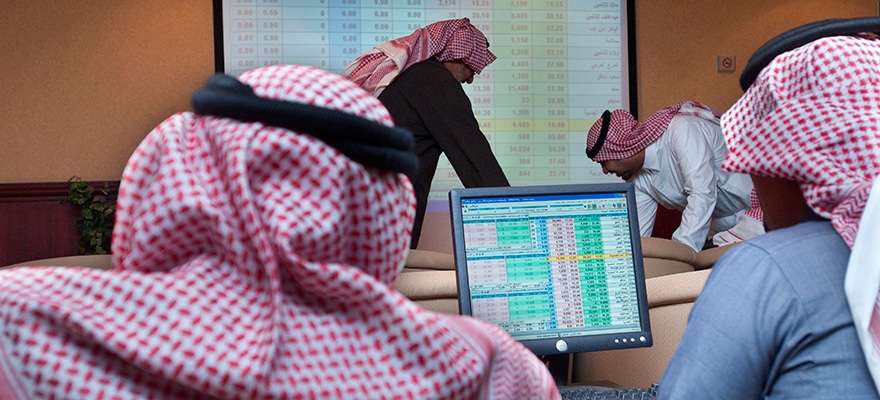A year after Saudi Arabia opened up its stock market to foreign investors, the financial regulator in the oil-rich kingdom, Capital Market Authority (CMA), announced Wednesday new amendments to its regulations to allow foreign institutional investments in the Exchange -listed debt instruments for the first time. The Saudi regulator further eased restrictions on foreign investments after the new amendments changed references to "shares" in the rules into "securities", according to a Thomson Reuters report.
The expected step came as part of reforms intended to attract more foreign capital into its markets as the country tries to tackle a widening budget deficit caused by cheap oil.
Regarding the suggested amendments, the regulator said in its statement: "Qualified Foreign Financial Institutions (QFIs) are allowed to invest in the debt market. In addition, the minimum limit for the assets under management is decreased to 3.75 Billion Riyals as opposed to 18.75 Billion Riyals. Furthermore, the types of the financial institutions are increased to include government funds and university endowments and other entities approved by CMA.”
The CMA has published its amendments seeking public comment during the specified period of 30 calendar days starting from June 20. It has previously said that the final reforms will be implemented by the middle of 2017.
Further limitations
In addition, investments of QFIs shall be subject to the following limitations:
Each QFI may not own 10% or more of the shares of any issuer whose shares are listed;
The maximum proportion of the shares of any issuer whose shares are listed that may be owned by all foreign investors (in all categories, whether residents or non-residents) in aggregate is 49%;
Other legislative limitations on foreign ownership, in addition to the limitations set forth or any instructions issued by regulator to which these companies are subject.
Access to debt instruments could increase the interest of foreign asset managers in Riyadh's securities exchange. Saudi Arabia has already eased barriers to foreign investments to give them “restricted access” to its $420 billion stock market, but the demand remains subdued as foreign traders and financial institutions watch from the sidelines and wait for reforms to come into effect. Also, concerns about trading restrictions, Liquidity and economic slowdown caused by low oil prices have so far limited flows of foreign money into the exchange.
Reforms to cut deficits
Saudi Arabia and its oil-exporting neighbours in the Arabian Gulf region, whose finances were hit by low oil prices, are increasingly looking to access capital markets to compensate for shrinking oil revenues.
Although the kingdom currently has a limited debt market with only about half a dozen listed bonds and sukuk issued at the end of last year, authorities have said that they will encourage more issuance and trading of Saudi corporate debt. Saudi Arabia is also weighing a sale of at least $15 billion bonds in July, after already borrowing $10 billion from a consortium of global banks in April.
Furthermore, the Kingdom’s Vision 2030 program is also looking to increase debt-to-GDP ratio from basically near zero levels now to 50 percent in the scope of five years, which should revive the national debt markets.
In its report on Vision 2030, Riyadh-based investment firm Jadwa warned that Saudi Arabia’s fiscal buffers would be heavily eroded in coming years if action is not taken to reduce the country’s dependence on oil. Even with a recovery in energy prices and higher production levels, as modelled in the report, the Saudi budget would come under further pressure with increased deficits.

















